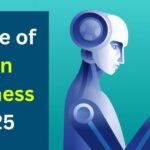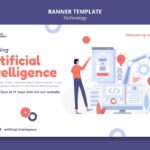Introduction: A New Dawn for AI Enthusiasts
Have you ever wondered what happens when two frontier technologies quantum computing and artificial intelligence meet? Picture this: you’re an IT professional, sipping your coffee, scrolling through headlines about faster processors or smarter algorithms. Suddenly, a headline catches your eye: “Quantum computers might transform AI.” It feels almost sci-fi, but it’s very real. In this post, I’ll walk you through how quantum computing companies are reshaping AI today and hinting at possibilities that once lived only in theory. Think of this as a friendly chat over coffee: we’ll dive into stories, spotlight key players, and explore what this could mean for your career in IT.
The Promise of Quantum Computing for AI
At its core, AI thrives on processing vast amounts of data and solving complex optimization problems tasks classical computers handle well but sometimes hit practical limits. Enter Quantum Computing: by leveraging qubits’ ability to exist in multiple states simultaneously, quantum machines can, in principle, tackle certain computations exponentially faster. For AI, this translates to potentially quicker model training, more efficient optimization routines, and the ability to explore solution spaces that classical methods struggle with. Researchers are experimenting with quantum algorithms for optimization (e.g., QAOA) and sampling, aiming to speed up hyperparameter tuning or improve recommendation engines far beyond today’s norms medium.com.
Yet, real-world quantum hardware remains in early stages: noisy, limited in qubit count, and requiring error correction. Nevertheless, progress is steady and that’s where forward-looking companies step in to bridge theory and practice.
Key Players Leading the Charge
IonQ: Trapped-Ion Trailblazer
If you follow the quantum space, you’ve likely come across IonQ. Founded by academic pioneers, IonQ develops trapped-ion quantum computers accessible via the cloud. These machines showcase how quantum hardware can be made available to developers and researchers, enabling experiments in quantum-enhanced AI workflows. IonQ’s approach demonstrates how startups can democratize access to quantum testbeds even before large-scale fault-tolerant systems arrive en.wikipedia.org.
Quantum Computing Inc: Integrated Photonics Innovator
Another intriguing player is Quantum Computing Inc (often styled “quantum computing inc”), a company focusing on integrated photonic quantum machines designed for room-temperature operation and low power. Their vision includes applying quantum hardware to AI-related tasks such as optimization or enhanced computing for machine learning models. By targeting affordability and accessibility, they exemplify how specialized quantum firms aim to serve research labs and enterprises exploring quantum-AI synergies today quantumcomputinginc.com.
Microsoft Quantum Computing: Big Tech’s Bet on the Future
Big tech giants aren’t sitting on the sidelines. Microsoft Quantum Computing efforts span developing novel qubit approaches (e.g., topological qubits in Majorana 1) and building platforms like Azure Quantum for cloud-based quantum experimentation. Microsoft’s narrative often highlights parallels between quantum and AI: both promise to tackle previously insurmountable problems from drug discovery to advanced analytics. By integrating quantum tools with existing AI services, Microsoft signals to IT pros that quantum-AI exploration is becoming part of mainstream cloud ecosystems azure.microsoft.com thequantuminsider.com.
Google Quantum Computer: From Research to AI Applications
Similarly, Google Quantum AI pushes boundaries with chips like Willow. Google’s breakthroughs in error reduction and scaling qubit counts underscore how quantum hardware development can unlock AI benefits think accelerated simulations for training models or novel algorithms for pattern recognition. Google’s open-source tools (e.g., Cirq) and cloud access allow curious developers to test quantum-inspired methods for AI tasks, fostering an ecosystem where quantum and AI research converge blog.google research.google.com.
Real-World Use Cases and Collaborations
While fully fault-tolerant quantum computers remain on the horizon, hybrid approaches are emerging. Here are a few illustrative examples:
- Optimization in Logistics and Finance: Some quantum computing companies collaborate with enterprises to tackle routing or portfolio optimization problems. Quantum-inspired algorithms run on classical hardware today, but as quantum hardware matures, these could accelerate scenario analyses for AI-driven decision-making.
- Quantum-Enhanced Machine Learning Research: Researchers experiment with quantum circuits to generate or process features for models, exploring whether quantum subroutines can offer advantages in classification or anomaly detection. Companies like IonQ or Microsoft provide cloud access so data scientists can prototype quantum-assisted pipelines.
- Drug Discovery and Material Simulation: AI models help predict molecular properties; quantum hardware can, in theory, simulate quantum chemistry more naturally. Partnerships between quantum computing companies and pharma/chem firms aim to combine AI-driven screening with quantum simulations to refine molecule candidates faster than classical approximations allow.
- Security and Cryptography: As AI-driven cybersecurity tools evolve, quantum computing companies focus on quantum-safe encryption. While this is not AI per se, it’s crucial: AI systems that handle sensitive data need protecting against future quantum threats. Thus, quantum firms contribute to secure AI deployments.
These use cases illustrate that, even now, quantum computing companies are collaborating with AI teams in industries ranging from logistics to healthcare setting the stage for deeper integration as hardware capabilities grow.
Challenges on the Road Ahead
It’s tempting to picture quantum-AI synergy as an overnight revolution, but we must be realistic. Current quantum hardware faces noise and limited qubit counts; quantum algorithms often need error correction that’s not yet fully practical. Moreover, integrating quantum subroutines into existing AI pipelines requires new expertise IT professionals may need to learn quantum basics, experiment with hybrid frameworks, and stay agile as the field evolves.
Additionally, hype can outpace reality. Not every AI problem will benefit from quantum methods; careful benchmarking is key. Yet, by staying informed, experimenting early with accessible platforms (e.g., cloud quantum services), and collaborating with quantum computing companies, IT practitioners can position themselves at the frontier.
Personal Insights & Career Takeaways
- Experiment Early: Sign up for cloud access from IonQ, Microsoft Azure Quantum, or Google Quantum AI. Even simple “hello world” quantum algorithms deepen your understanding of quantum-AI possibilities.
- Learn Hybrid Approaches: Explore quantum-inspired algorithms running on classical hardware this builds intuition for potential speedups when real quantum hardware scales.
- Network with the Community: Join quantum meetups, online forums, or conferences where quantum computing companies showcase AI use cases. Hearing firsthand from researchers and startup founders offers invaluable perspective.
- Embrace Lifelong Learning: The quantum landscape evolves rapidly. Dedicate time for quantum computing courses or workshops, and follow updates from key players like ion q (NYSE: IONQ) or Quantum Computing Inc as they publish progress.
- Balance Hype with Prudence: Stay enthusiastic yet grounded identify AI challenges in your organization that could plausibly benefit from quantum methods, but also be ready to pivot if classical solutions suffice.
By weaving quantum considerations into your AI skill set today, you prepare for a future where quantum-accelerated AI may unlock breakthroughs previously out of reach.
Conclusion: Stepping into the Quantum-AI Frontier
Quantum computing companies from nimble startups like IonQ to established giants like Microsoft and Google are steadily laying the groundwork for quantum-AI integration. While it’s not an instant transformation, the journey is already underway: hardware advances, cloud platforms, and collaborative projects all point toward a future where AI workflows incorporate quantum primitives. For IT professionals and AI enthusiasts, now is the time to explore, learn, and engage with quantum computing companies. Treat it as an adventure: the questions you experiment with today could shape the career opportunities of tomorrow. So, grab that coffee, fire up a quantum notebook in the cloud, and see where this quantum-AI path leads you!
- Quantum Computing Companies Are Reshaping Artificial Intelligence
- Explore how quantum computing companies are revolutionizing AI with breakthroughs from IonQ, Quantum Computing Inc, Microsoft Quantum, and Google Quantum.
- quantum computing companies
Related posts:
 Can Generative AI Truly Replace Human Creativity in the Future?
Can Generative AI Truly Replace Human Creativity in the Future?
 Blurring Boundaries: How AI is Reshaping the Future of Digital Art?
Blurring Boundaries: How AI is Reshaping the Future of Digital Art?
 Exploring Coderway.net: A Modern Gateway to AI-Powered Image Creation
Exploring Coderway.net: A Modern Gateway to AI-Powered Image Creation
 The Future of AI in Business: Predictions for 2025 and Beyond
The Future of AI in Business: Predictions for 2025 and Beyond
 Understanding AI Inference as a Service: How It Powers Smart Applications
Understanding AI Inference as a Service: How It Powers Smart Applications
 The Role of AI Model Libraries and Vector Databases in Modern AI Deployment
The Role of AI Model Libraries and Vector Databases in Modern AI Deployment
 Revolutionizing App Development in Dubai with AI-Powered Custom Solutions
Revolutionizing App Development in Dubai with AI-Powered Custom Solutions
 Artificial Intelligence Development Services: What You Need to Know
Artificial Intelligence Development Services: What You Need to Know







